Infectious Diseases
Comprehensive care for infectious diseases in Banashankari, Bangalore. Dr. Rajdeepak V.S offers expert diagnosis and personalized treatment for viral, bacterial, fungal, and parasitic infections—ensuring safe recovery and prevention.
Content Topics
Infectious Disease Treatment in Bangalore
Infectious diseases are caused by harmful pathogens like viruses, bacteria, fungi, or parasites that invade the body, leading to symptoms that can range from mild discomfort to severe complications. Infectious Disease Treatment is essential, especially in densely populated cities like Bangalore, where these illnesses spread through air, water, food, or close contact. Timely medical care is crucial for managing infections and preventing severe outcomes.
Dr. RajDeepak V.S, General Physician and Internal Medicine Specialist, offers advanced Infectious Disease Treatment in Banashankari, Bangalore with a focus on early detection, accurate diagnosis, and personalized care. His expertise ensures effective management of various infections, helping patients recover safely and prevent further spread.
What Are Infectious Diseases?
Infectious diseases are illnesses caused by pathogenic microorganisms such as viruses, bacteria, fungi, or parasites that enter the body and disrupt normal functions. These organisms multiply rapidly, leading to a wide range of health issues depending on the type and severity of the infection.
They can spread through direct contact with infected individuals, contaminated food or water, insect bites, or environmental exposure. Early diagnosis and proper medical care are essential to prevent complications and limit transmission.
What’s the Difference Between Infectious and Non infectious Diseases?
Understanding the distinction between infectious and non infectious diseases is crucial for effective prevention and treatment.
- Infectious Diseases: These are caused by pathogenic microorganisms such as viruses, bacteria, fungi, or parasites. They are often contagious and can spread through various means, including direct contact, airborne transmission, or vectors like mosquitoes.
- Non infectious Diseases: These result from genetic, environmental, or lifestyle factors and are not caused by external pathogens. Examples include diabetes, hypertension, and congestive heart failure.
For those seeking expert care, Dr. Rajdeepak V.S, a trusted General Physician and Internal Medicine Specialist, offers comprehensive Infectious Disease Treatment in Banashankari , Bangalore. His holistic approach includes accurate diagnosis, trigger identification, and tailored treatment plans to manage infections effectively.
What Are the Types of Infectious Diseases?
Understanding the various types of infectious diseases is essential for accurate diagnosis and effective treatment. These diseases are classified based on the pathogens that cause them, each requiring specific medical approaches.
- Viral Infections: Caused by viruses, these infections include the common cold, influenza, HIV/AIDS, and COVID-19.
- Bacterial Infections: Resulting from bacteria, examples are tuberculosis, strep throat, and urinary tract infections.
- Fungal Infections: Caused by fungi, such as candidiasis and ringworm.
- Parasitic Infections: Due to parasites, including malaria and giardiasis.
For those seeking expert care, Dr. Rajdeepak V.S, a trusted General Physician and Internal Medicine Specialist, offers comprehensive Infectious Disease Treatment in Bangalore. His holistic approach includes accurate diagnosis, trigger identification, and tailored treatment plans to manage infections effectively.
What Are Common Infectious Diseases?
Understanding common infectious diseases is key to early detection, timely care, and successful recovery. These illnesses are caused by various pathogens such as viruses, bacteria, parasites, and fungi, and may spread through direct contact, airborne droplets, contaminated surfaces, or insect vectors.
- Here are some of the most common types of infectious diseases:
- Influenza (Flu): A viral respiratory infection that causes symptoms like fever, cough, sore throat, and muscle aches. It’s highly contagious and seasonal in nature.
- Tuberculosis (TB): A serious bacterial lung infection, TB spreads through airborne droplets and remains a major public health concern, especially in urban settings.
- HIV/AIDS: A chronic viral disease that attacks the immune system, reducing the body’s ability to fight off other infections.
- Malaria: Caused by parasites transmitted through mosquito bites, this parasitic infection is common in tropical regions and can lead to fever, chills, and severe complications if untreated.
- Common Cold: A viral upper respiratory tract infection, it presents with symptoms like sneezing, runny nose, sore throat, and fatigue.
- COVID-19: A novel coronavirus infection caused by SARS-CoV-2, characterized by cough, breathlessness, and sometimes severe respiratory complications.
Dr. Rajdeepak V.S, General Physician and Internal Medicine Specialist, provides evidence-based, personalized Infectious Disease Treatment in Bangalore, helping patients recover safely with targeted therapies and preventive care.
What Are the Symptoms of Infectious Diseases?
Recognizing the early signs of infectious diseases is essential for timely diagnosis and effective treatment. These symptoms arise as the body reacts to harmful microorganisms such as bacteria, viruses, fungi, and parasites. While some infections show noticeable signs, others may remain silent for days or even weeks.
Common symptoms of infectious diseases include:
- Fever and chills: A common response to viral or bacterial infections.
- Fatigue and weakness: Persistent tiredness as the immune system fights off the infection.
- Cough and sore throat: Often associated with respiratory infections like the flu, tuberculosis, or COVID-19.
- Diarrhea or vomiting: Typical of gastrointestinal infections caused by viruses or contaminated food.
- Muscle aches and joint pain: Seen in infections like dengue, chikungunya, or the flu.
- Skin rashes or irritation: Indicative of certain viral or fungal infections.
- Swollen lymph nodes: A sign that the immune system is actively responding to infection.
Some infectious diseases may present mild or no symptoms, making routine health check-ups and early screening for infections crucial—especially in a high-density urban environment like Bangalore.
Dr. Rajdeepak V.S, General Physician and Internal Medicine Specialist, offers comprehensive evaluation and Infectious Disease Treatment in Bangalore, ensuring early intervention and personalized care.
What Causes Infectious Diseases?
Understanding the root causes of infectious diseases helps in early prevention, timely diagnosis, and effective treatment. These illnesses occur when harmful microorganisms—known as pathogens—invade the body, disrupt normal functions, and trigger immune responses.
The main causes of infectious diseases include:
- Viruses: Microscopic agents that infect host cells and replicate rapidly. Examples include the influenza virus, hepatitis viruses, and SARS-CoV-2 (COVID-19).
- Bacteria: Single-celled organisms that release toxins or multiply within tissues. Diseases like tuberculosis, pneumonia, and urinary tract infections are bacterial in origin.
- Fungi: These thrive in warm, moist environments and often cause skin, nail, or lung infections. Candidiasis and aspergillosis are common fungal infections.
- Parasites: Organisms that live on or inside the host and draw nutrients. Malaria, giardiasis, and toxoplasmosis are parasitic infections affecting various organs.
- Prions: Rare infectious proteins that affect brain function, leading to conditions like Creutzfeldt-Jakob disease.
Proper hygiene, vaccinations, and medical screening can significantly reduce the risk of infections. Dr. Rajdeepak V.S, General Physician and Internal Medicine Specialist, offers expert diagnosis and Infectious Disease Treatment in Bangalore, helping patients manage a wide range of infections with advanced care.
How Do Infectious Diseases Spread?
Knowing how infectious diseases spread is essential for preventing outbreaks and ensuring timely medical intervention. These illnesses are caused by harmful pathogens that can transmit in several ways, depending on the nature of the disease and environmental factors.
- Common transmission methods include:
- Direct Contact: Physical contact such as touching, kissing, or sexual interaction with an infected individual. This is common in diseases like skin infections or sexually transmitted infections.
- Indirect Contact: Touching objects or surfaces contaminated with pathogens—like doorknobs, utensils, or medical equipment—can lead to the spread of infections.
- Airborne Transmission: Respiratory droplets released during coughing, sneezing, or talking can carry viruses and bacteria, leading to diseases like influenza, COVID-19, or tuberculosis.
- Vector-Borne Transmission: Insects like mosquitoes or ticks can transmit infections such as malaria, dengue, or Lyme disease.
- Contaminated Food and Water: Ingesting food or water tainted with pathogens can lead to gastrointestinal infections like cholera, typhoid, or hepatitis A.
- Mother to Child: Certain infections such as HIV or syphilis can pass from mother to baby during pregnancy, delivery, or breastfeeding.
Preventive hygiene practices, vaccination, and early detection can greatly reduce transmission risks. Dr. Rajdeepak V.S, General Physician and Internal Medicine Specialist, provides expert guidance and comprehensive Infectious Disease Treatment in Bangalore to manage and control the spread of infections effectively.
Can Infectious Diseases Be Prevented?
Yes, prevention strategies include:
- Vaccination: Immunizations against diseases like influenza, hepatitis, and measles.
- Hand Hygiene: Regular hand washing with soap and water.
- Safe Food Practices: Proper cooking and food handling.
- Safe Water: Drinking clean and treated water.
- Use of Protective Equipment: Masks and gloves when necessary.
- Avoiding Close Contact: Especially with individuals showing symptoms of illness.
What Complications Are Associated with Infectious Diseases?
Understanding the complications of infectious diseases is key to preventing long-term health issues and community outbreaks. When not diagnosed or managed early, these conditions can escalate into serious, sometimes irreversible consequences.
Potential complications include:
- Chronic Health Conditions: Persistent infections may lead to organ damage, neurological disorders, or prolonged fatigue, especially in diseases like hepatitis or HIV/AIDS.
- Transmission to Others: Delayed treatment increases the risk of spreading the infection within households, workplaces, or communities—contributing to local or widespread outbreaks.
- Antibiotic Resistance: Misuse or incomplete treatment of bacterial infections can result in drug-resistant strains, making future treatment more challenging.
- Severe Illness or Death: Infections such as sepsis, meningitis, or respiratory diseases can escalate rapidly, requiring emergency care or hospitalization.
Timely diagnosis, preventive care, and medical supervision by experts like Dr. Rajdeepak V.S, General Physician and Internal Medicine Specialist, are vital to managing these risks effectively. He offers advanced Infectious Disease Treatment in Bangalore, ensuring safe and personalized care.
How Are Infectious Diseases Diagnosed?
Accurate diagnosis is the first step in managing infectious diseases effectively and preventing complications. Early identification of the causative pathogen helps ensure timely and targeted treatment, reducing the risk of disease progression and transmission.
Common diagnostic methods include:
- Physical Examination & Medical History: A general physician assesses symptoms such as fever, fatigue, rashes, or respiratory discomfort while reviewing any recent exposures or travel history.
- Laboratory Tests: Blood, urine, and stool tests help detect specific infectious agents, including bacteria, viruses, fungi, or parasites.
- Molecular Tests (e.g., PCR): These highly sensitive tests are used for detecting genetic material of viruses like COVID-19, HIV, or influenza.
- Culture Tests: Samples from throat swabs, blood, or wounds are cultured to grow and identify bacteria or fungi causing the infection.
- Imaging Scans: X-rays, CT scans, or ultrasounds are used to locate infections within organs, such as lung infections or tuberculosis.
For expert evaluation and diagnostic services, consult Dr. Rajdeepak V.S, General Physician and Internal Medicine Specialist, known for comprehensive Infectious Disease Treatment in Bangalore.
Treatment Options for Infectious Diseases
Timely and appropriate treatment is crucial to manage infectious diseases effectively and prevent serious health complications. The treatment strategy is determined by the type of pathogen involved—bacterial, viral, fungal, parasitic, or prion-related.
Common infectious disease treatment options include:
- Antibiotics: Used for bacterial infections such as tuberculosis, strep throat, and urinary tract infections. It’s important to follow the prescribed course to prevent antibiotic resistance.
- Antiviral Medications: Recommended for viral infections like HIV/AIDS, influenza, and COVID-19. These medications help reduce viral replication and ease symptoms.
- Antifungal Drugs: Prescribed for fungal infections such as candidiasis, ringworm, or aspergillosis, especially in immunocompromised patients.
- Antiparasitic Treatments: Effective against conditions like malaria, giardiasis, or amebiasis, often administered based on parasite type and severity.
- Supportive Care: Includes adequate rest, hydration, fever reducers, and nutritional support to boost immune function.
- Hospitalization and Advanced Care: Required in severe or complicated cases, particularly for patients with underlying health conditions or weakened immune systems.
Consulting with an experienced specialist like Dr. Rajdeepak V.S, a trusted expert in internal medicine, ensures that patients receive the most accurate diagnosis and effective Infectious Disease Treatment in Bangalore.
Conclusion
Timely diagnosis, expert care, and targeted treatment are key to managing infectious diseases effectively. With the right medical guidance, most infections can be treated successfully, preventing complications and protecting public health. For comprehensive care, consult Dr. Rajdeepak V.S, a trusted General Physician and Internal Medicine Specialist offering expert Infectious Disease Treatment in Banashankari, Bangalore. His personalized approach ensures accurate diagnosis and effective recovery.


